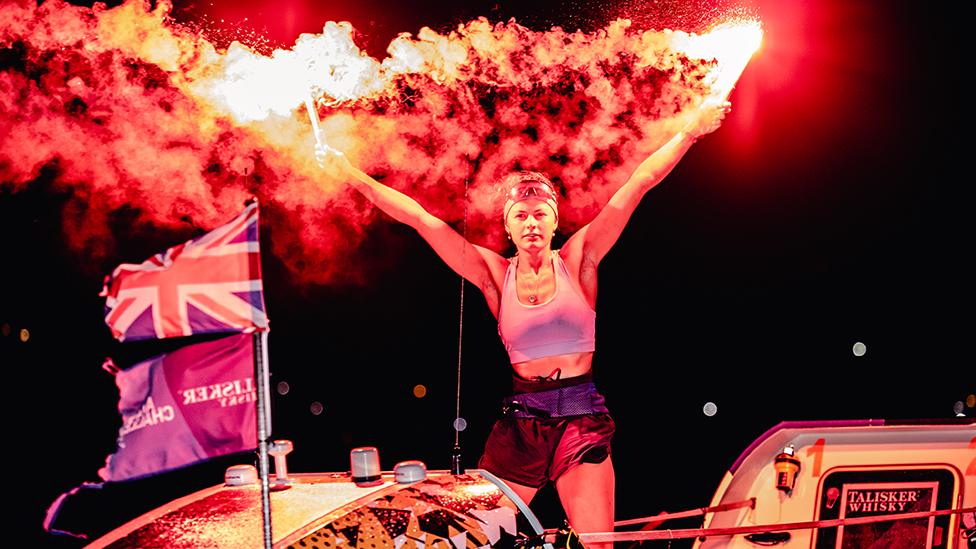British women row Pacific without lights or radio
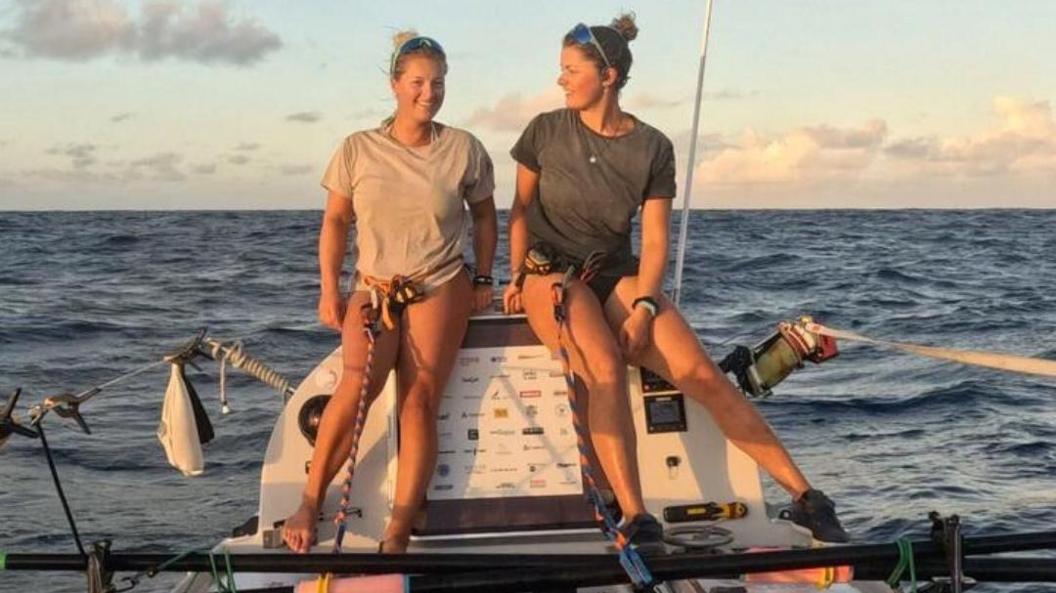
Jess Rowe (left) and Miriam Payne are rowing from Peru to Australia
- Published
Two British women have rowed nearly 6,000 miles (9,600km) across the Pacific Ocean without vital equipment including navigational lights and a radio.
Miriam Payne, 25, from East Yorkshire, and Jess Rowe, 28, from Hampshire, set off from Peru for Australia on 5 May after an earlier attempt failed when their boat broke in rough seas and they had to be rescued by a sailor.
Miss Payne said: "We can't seem to figure out what the issue is but we don't have enough power to run any of our navigation equipment."
However, she said they were "absolutely loving" the challenge and "every stroke is one stroke closer to Australia".
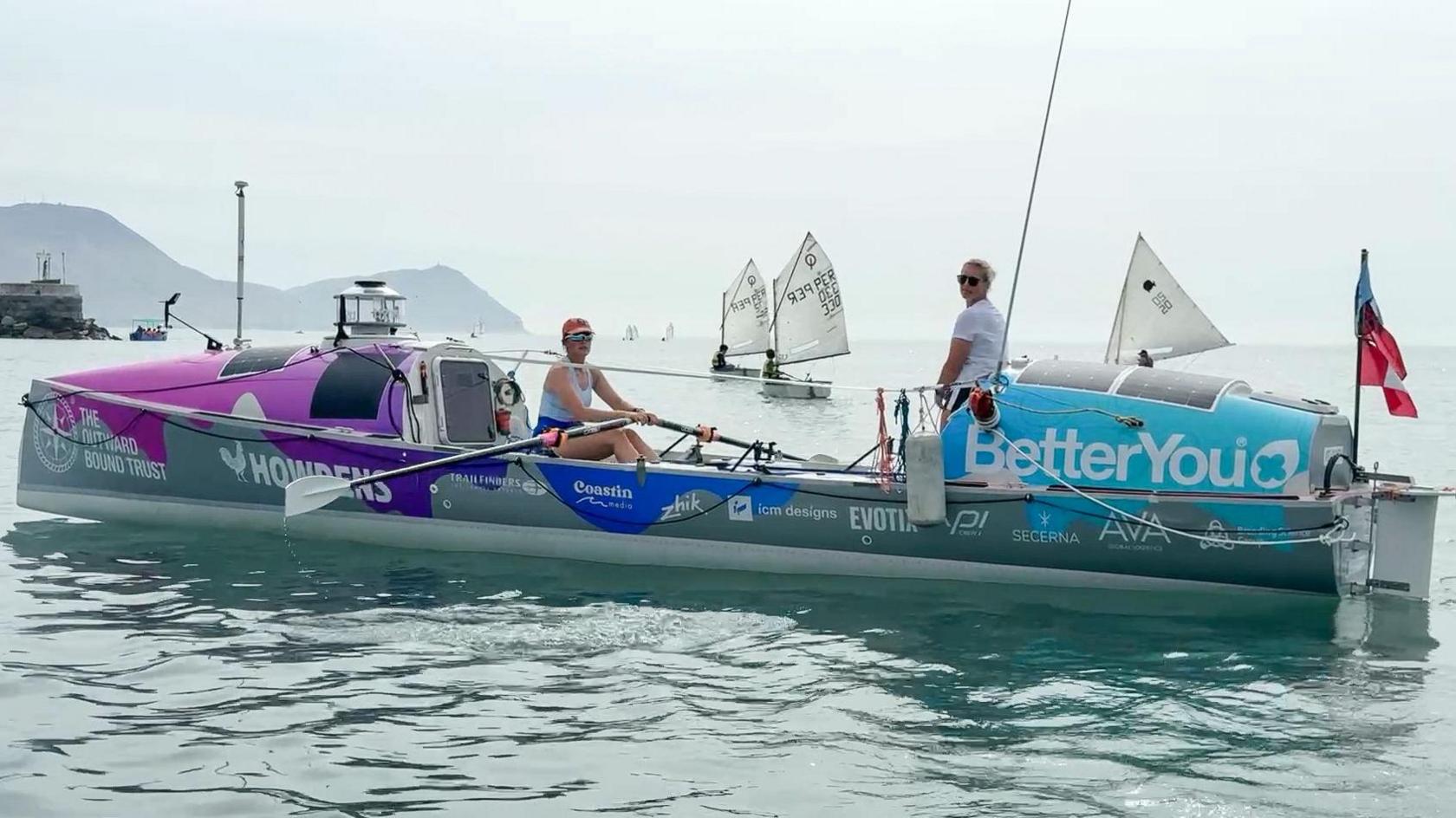
The pair's first attempt failed when their boat broke in rough seas
The pair, who call their team Seas the Day, face a race against time to cross the ocean before the start of cyclone season after their rudder broke during an initial attempt at the beginning of April.
They had to be rescued about 350 miles (560km) from the coast of Lima and towed back to shore. A Norfolk-based boat builder then worked around the clock to make a replacement rudder.
Throughout the day, Miss Payne and Miss Rowe are rowing together.
Overnight, between 18:00 and 06:00, they work in two-hour shifts – with one rowing solo while the other sleeps. It means they never get more than two hours' sleep at a time.
After 6,000 miles and 116 days, Miss Payne and Miss Rowe said they were "struggling with sleep deprivation".
"We've not had a sleep of more than two hours in 110 days, so we are really feeling pretty exhausted," Miss Payne said.
"Our bodies are also aching quite a lot from the amount of rowing that we're doing and we're losing grip strength in our hands."
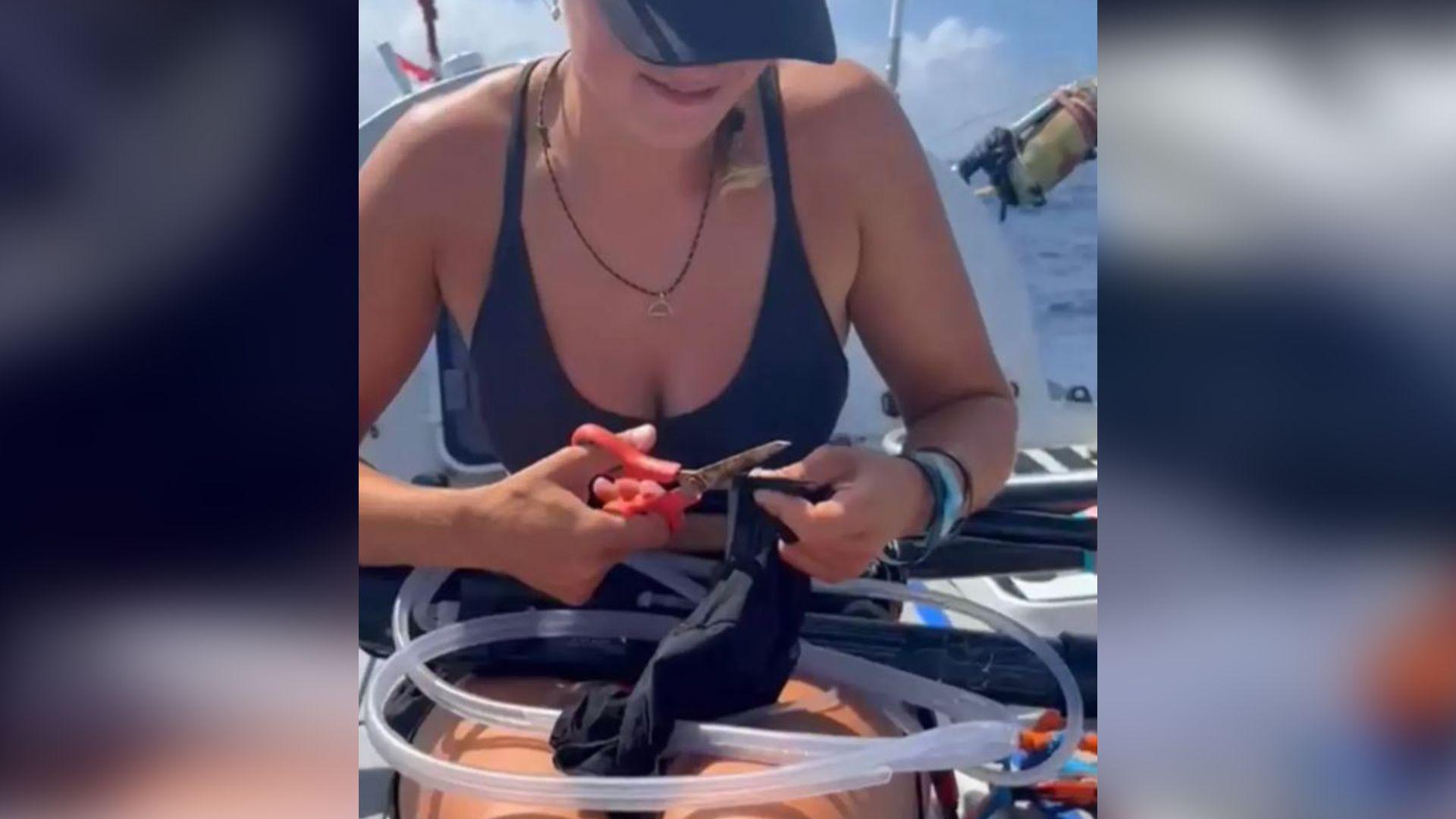
The rowers tried to fix their water maker using a pair of pants
Miss Payne, from Market Weighton, started rowing when she was at university in Glasgow and completed a solo crossing of the Atlantic Ocean in 2023.
She met Miss Rowe in Antigua at the finish line of the Talisker Whiskey Atlantic Challenge, in February of that year.
Without about eight weeks to go until they reach Australia, Miss Payne said she was "dying for a slice of toast, a bottle of beer, and an actual shower".
"To start under the shower and not have to tip a bucket over us would be amazing," she said.
The rowers are aiming to raise £50,000 for The Outward Bound Trust, a charity that aims to help young people build confidence by taking part in outdoor challenges.
Listen to highlights from Hull and East Yorkshire on BBC Sounds, watch the latest episode of Look North or tell us about a story you think we should be covering here, external.
Download the BBC News app from the App Store, external for iPhone and iPad or Google Play, external for Android devices
Related topics
- Published18 July
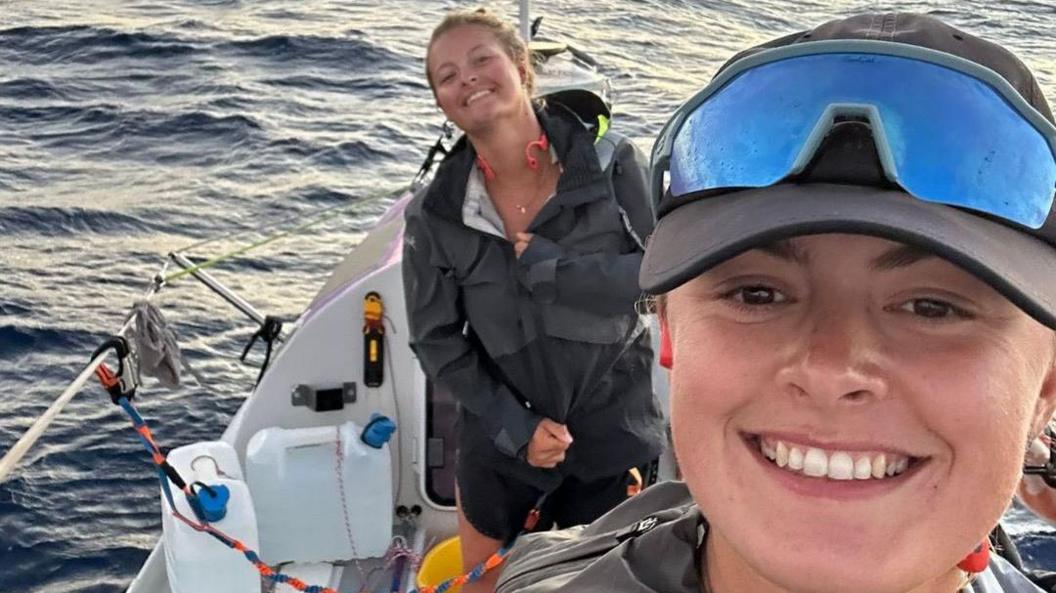
- Published5 May
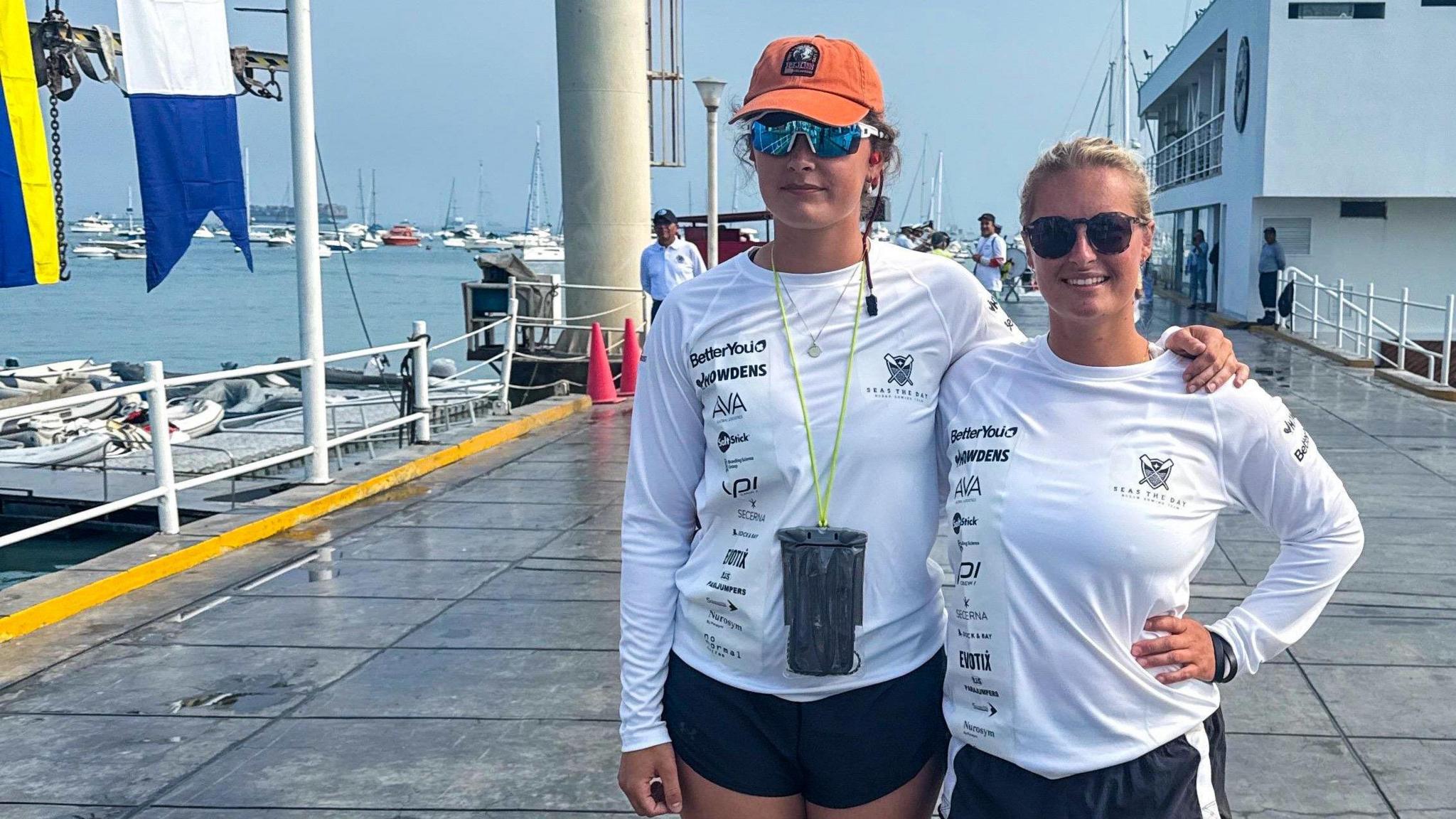
- Published2 May
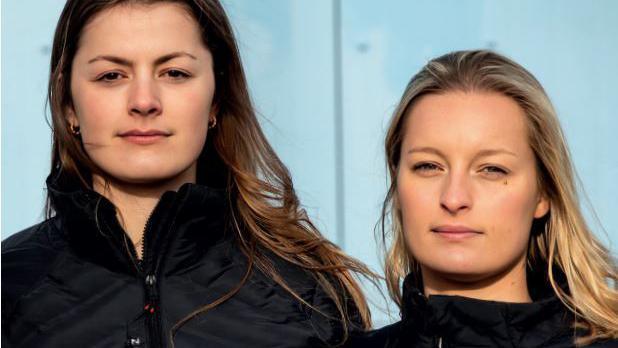
- Published17 April
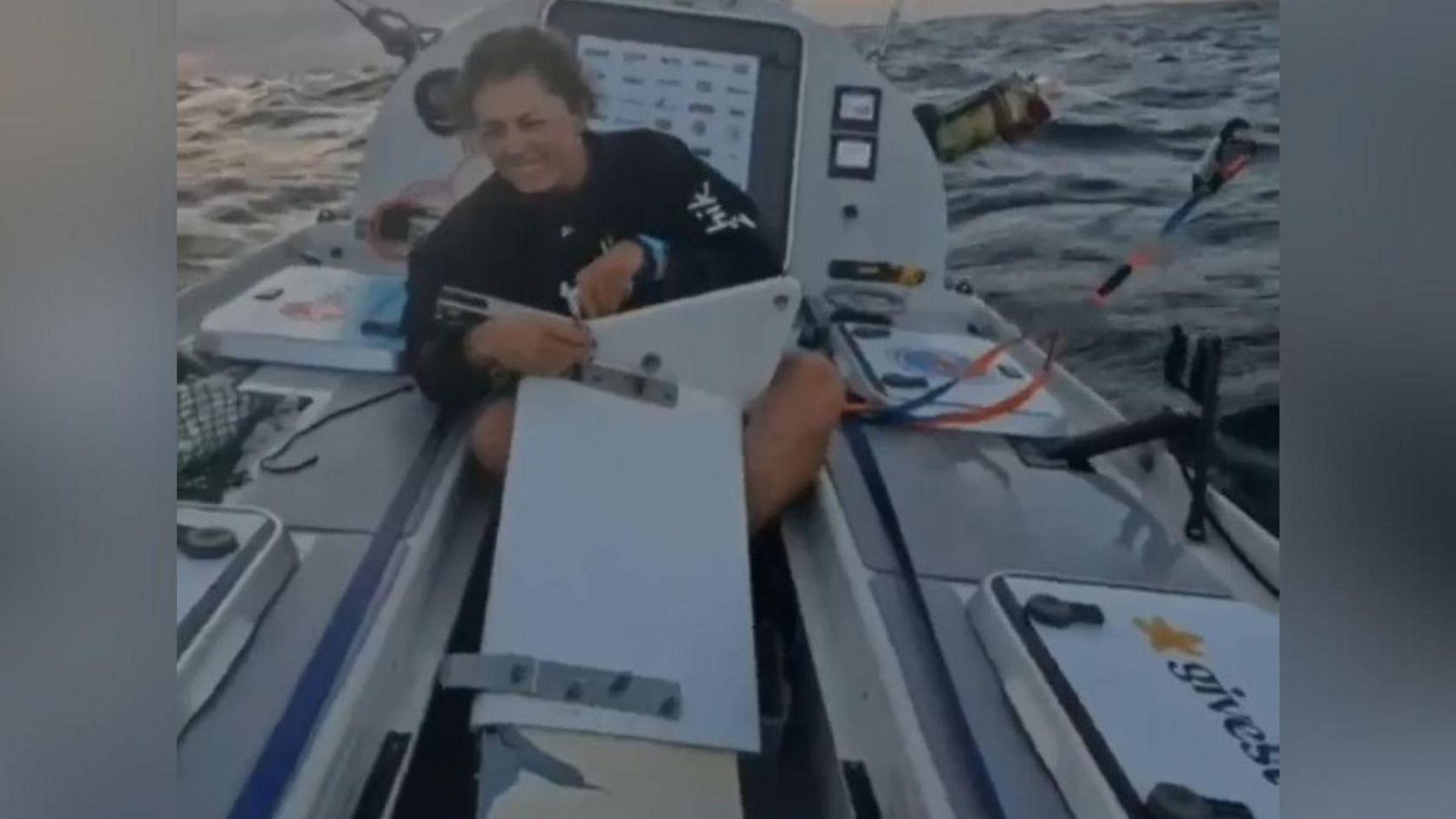
- Published4 April

- Published31 August 2024
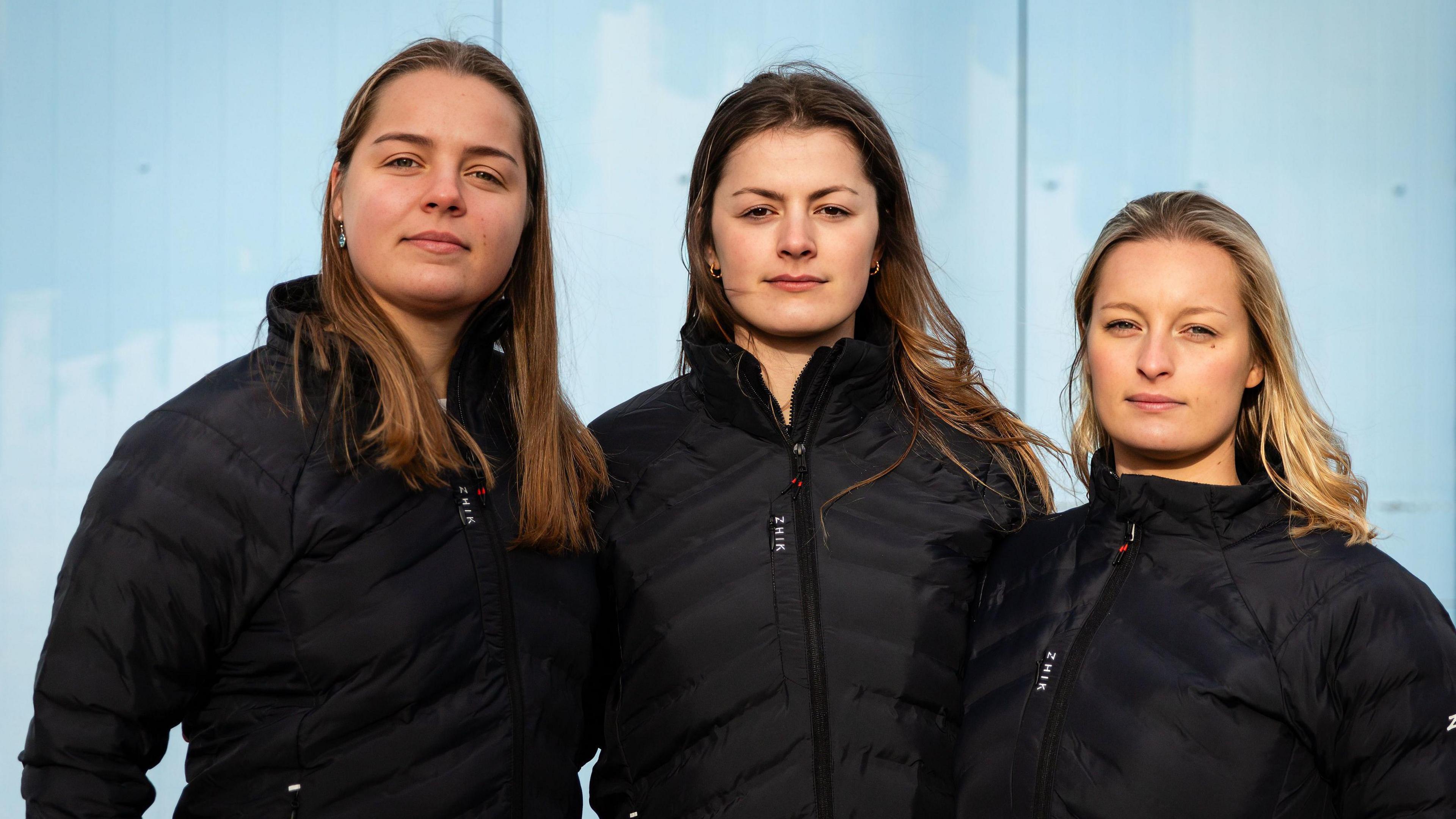
- Published19 April 2024
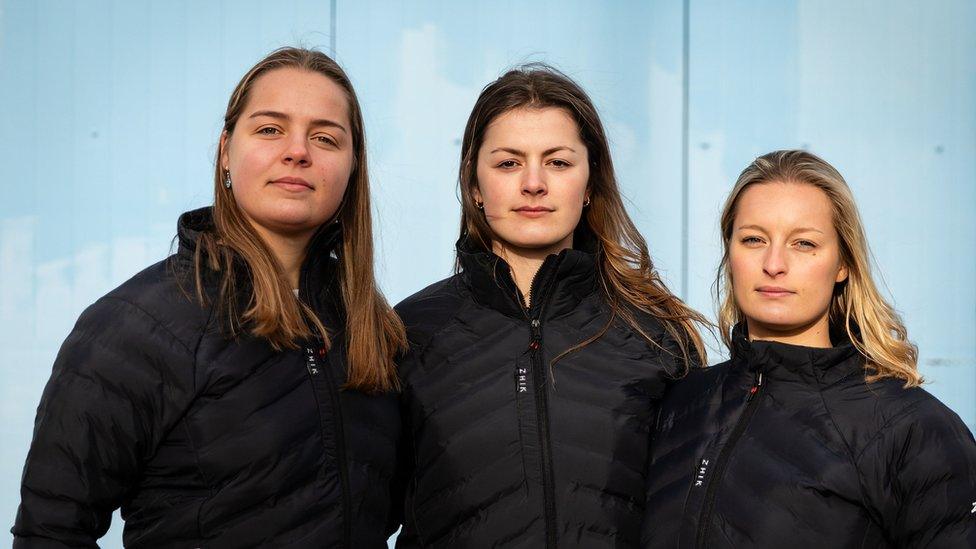
- Published10 February 2023
